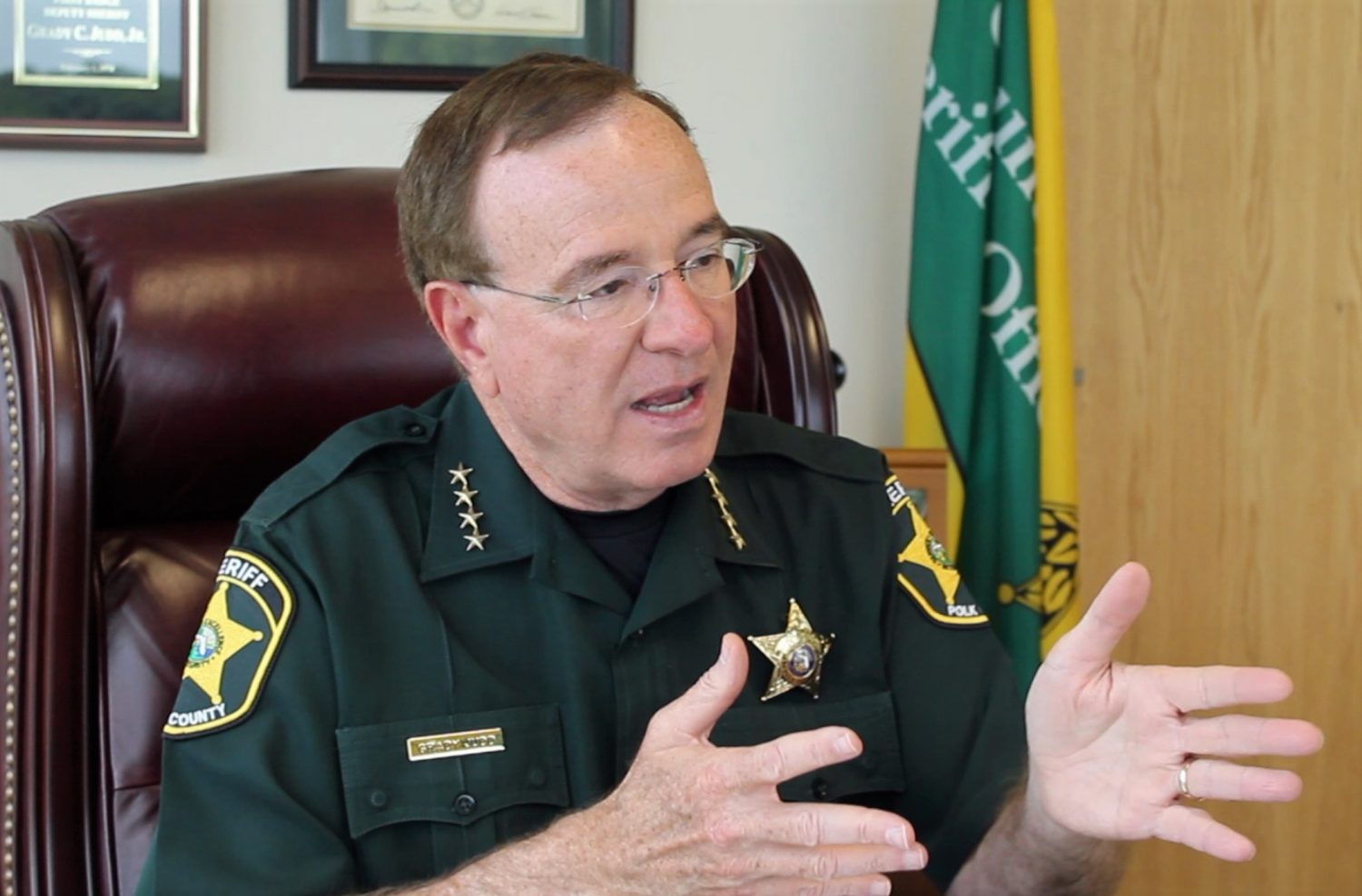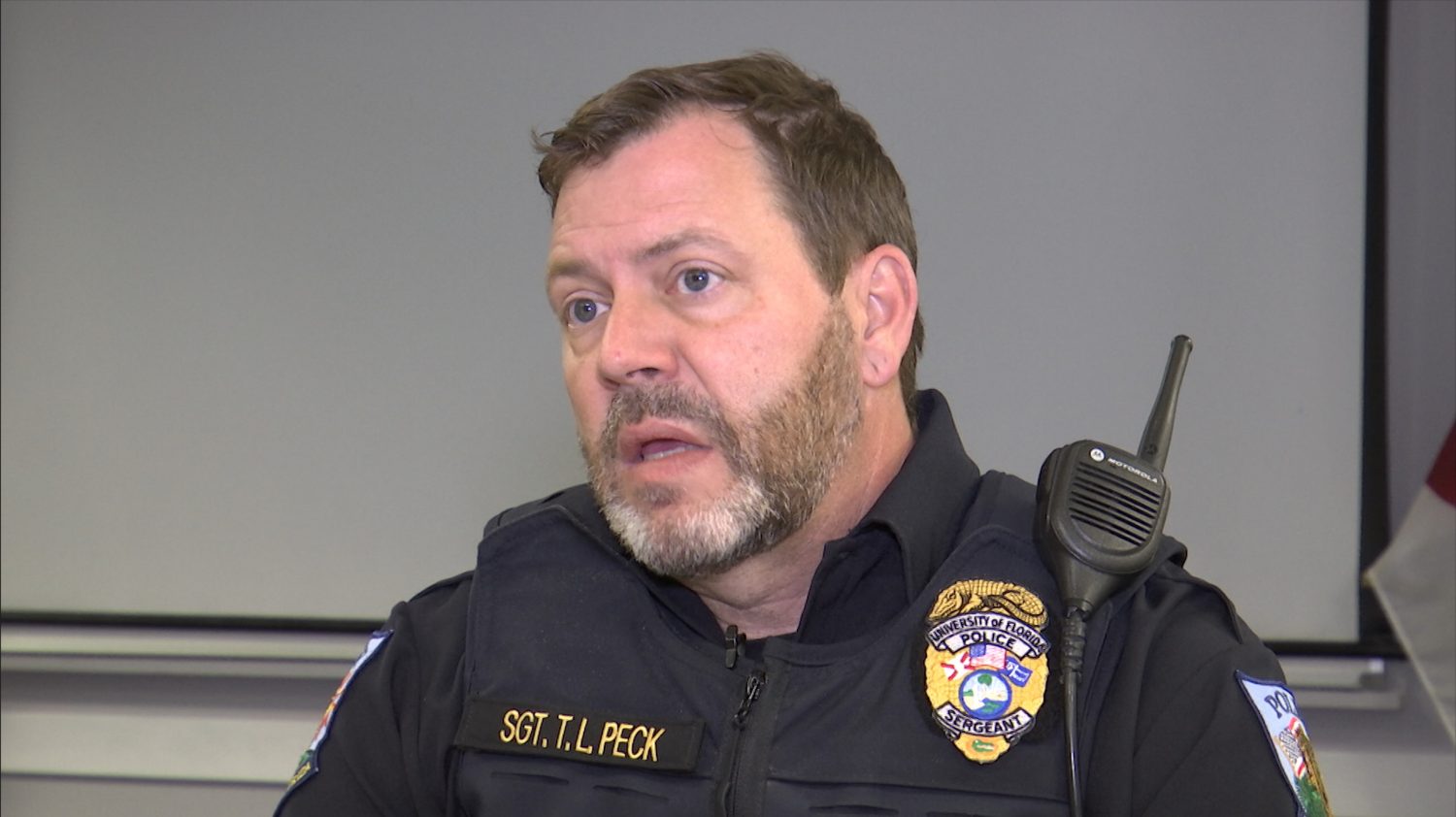The pro-gun crowd say guns are not the problem when it comes to school gun violence, but they could be a solution.
Story by Henry Coburn, Lauren Reynolds and Dolores Hinckley
After each school mass shooting, pressure builds on both sides of the political aisle to enact stronger safety policies.
The solutions proposed by left and right factions differ: Arguments for arming teachers clash with calls for stricter background checks and longer waiting periods. Staunch supporters of the Second Amendment told WUFT News they feel their right to bear arms are in the political crosshairs.
“It protects your right to speak freely or right to worship, how you feel, your right to protest,” said Jordan Stein, the spokesman for Gun Owners of America (GOA).
When we have the right to keep and bear arms, it gives our other freedoms teeth.
During his interview with WUFT, Stein had a Glock 19 handgun on his person.
After the shooting at Marjory Stoneman Douglas High School in Parkland, Florida, that left 17 dead in 2018, pressure on lawmakers to pass gun control legislation spiked, according to the Giffords Law Center, a gun-control advocacy group.
One of the solutions to school shootings backed by Stein and GOA is arming teachers.
“We advocate for arming teachers,” he said. “Even beyond that, we supported legislation that would let people with permits to carry on school grounds.”
Florida’s ‘guardian’ program, formally known as the Coach Aaron Feis Guardian Program and named after an MSD educator who died shielding students during the shooting, came to fruition as part of SB 7026, which was passed in 2018 by the Florida Legislature and signed by then-Gov. Rick Scott.
School districts have the option to participate in the program or not. By law, teachers who exclusively perform class-related duties cannot carry firearms, but JROTC teachers, current military and former law enforcement personnel can.

Polk County Sheriff Grady Judd enacted one of the first guardian-style programs.
“Day one, in Polk County, Florida, on August 13 when school let back in, we had every campus in this county covered, public school campus and charter school campus, with either a law enforcement officer or a guardian,” Judd said. “And do you know what? The parents of the children gave us huge ovations.”
One of Judd’s main arguments in support of the ‘guardian’ program is timing.
“We did this based up on evidence,” he said. “The active shooter arrives, does his evil deed and is complete in two to five minutes on the average. The police response is plus five minutes.”
When seconds count, minutes don’t matter.
The movement to arm school staff is one that Parkland parent Andrew Pollack supports. His daughter, Meadow, was killed in the MSD school shooting. Meadow was 18 years old.
“If there would have been someone trained in that school, they would’ve been able to save a lot of lives,” he said. “You need to be able to protect yourself and the people at these facilities need to be able to protect our kids.”
Despite the push to arm teachers from parents like Pollack, organizations like GOA and law enforcement leaders like Judd, the thought of more guns in schools isn’t a comfort to some parents and teachers.
“Teachers unions across the state of Florida pushed back,” Judd said. “They didn’t want it. They didn’t want guns on campus. Did you hear me? They pushed back.”
According to a March 2018 Gallup poll, 73 percent of teachers in the United States oppose carrying guns in schools.
Samantha Haviland was a student at Columbine High School when the shooting occurred in 1999. She now works as the Director of Counseling and College Access for Denver Public Schools. She said the idea of a gun in her hand while she’s at work is too much.
“The idea of putting guns in the hands of teachers who are supposed to just teach math, like speaking as a school professional, please do not give me a gun,” she said.

Arming teachers is also a concern for law enforcement. Sgt. Tim Peck works for the University of Florida Police Department. He trains teachers in ALICE — Alert, Lockdown, Identify, Counter and Evacuate. The organization that started the program claims to be the nation’s leader in active shooter civilian response training.
Peck said teachers with guns could be mistaken by law enforcement for armed assailants. He said law enforcement officers could shoot innocent teachers by mistake.
During training, Peck said he has to ask teachers tough questions like, “If you were armed, and your favorite student came in as the active shooter, would you be able to shoot that person?”
Answering that question is hard for Haviland.
“If a kid that I loved came up to me wanting to kill his peers, I would do everything in my power to talk that child into giving me the gun,” she said. “But God forbid that child kill me, now that child has two guns and is going to cause more damage.”
Introduced in the 2019 Florida Legislative Session, Senate Bill 7030, would expand the ‘guardian’ program in the state to allow teachers to carry guns in classrooms. After passing both chambers of the Florida legislature, Governor Ron DeSantis is expected to sign the bill into law.
Up next: An International Perspective »
 Special Report from WUFT News
Special Report from WUFT News